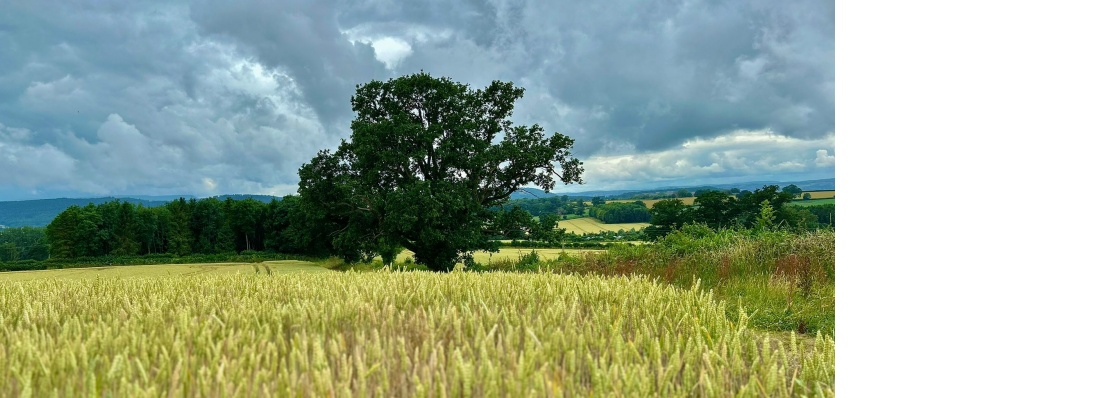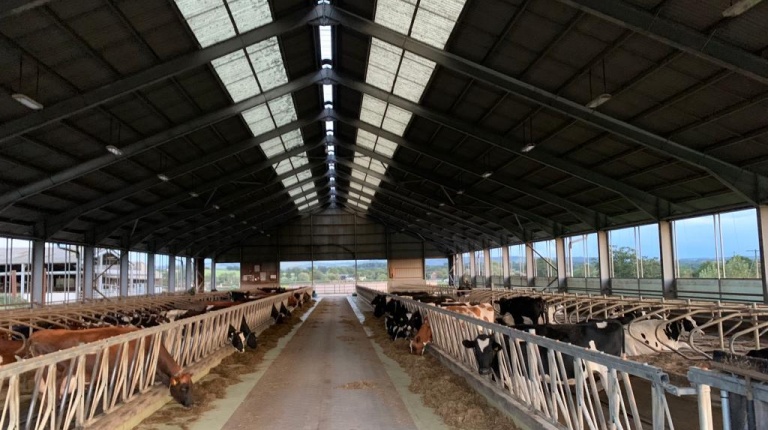The 2023 Autumn Statement for Farmers and Landowners
Farmland Inheritance Tax Relief - Consultation Closed
In the spring a consultation was announced on extending Agricultural Property Relief (APR) to land managed under an environmental scheme such as SFI and reforms to APR on let land.
The consultation closed in June 2023 and disappointingly no announcement has yet been made. The lack of clarification in both of these areas is holding farmers and landowners back from making important decisions and we hope for a prompt update.
If you are considering a substantial change to farming practices including putting a large area down to an environmental scheme or letting land on a long term tenancy then it is important that the potential Inheritance Tax is reviewed beforehand.
National Insurance on Profits Reduced for the Self-Employed
Class 4 National Insurance is paid by sole traders and partners in partnerships with earnings above £12,570.
Currently this is paid at 9% of profits between £12,570 and £50,270. From 6 April 2024 the rate is reducing to 8%.
Profits above £50,270 will continue to be taxed at 2%.
As most farms continue to operate as partnerships this is a welcome tax reduction for our clients under state pension age, worth up to £377 per partner per year.
Class 2 National Insurance almost abolished!
In addition to Class 4 above, many partners and sole traders pay Class 2 National Insurance in order to secure a year of state pension credit.
Class 2 must currently be paid by those with profits above £12,570 for a tax year. From 6 April 2024 this payment will no longer be required.
For those with profits between £6,725 and £12,570, a year of state pension credit is currently given without the need for payment. This will continue.
Sole traders and partners with profits below £6,725 do not automatically receive state pension credit but can obtain it by making a voluntary payment. From 6 April 2024 these will be the only taxpayers making Class 2 National Insurance Contributions.
With the state pension now worth up to £11,500 per year it remains important to maximise your years of contributions. If paid in the year then Class 2 for 2024/25 is only £179.40 which may well be worth paying even for those with low profits.

Plant and Machinery Tax Relief Made Permanent
From 1 April 2023 companies have been able to claim full tax relief in the year of purchase for new plant and machinery with no limit.
There is also relief for 50% of the cost of new “special rate“ items such as solar panels and electrical works.
These measures were due to end in March 2026 but have now been made permanent.
Partnerships, sole traders and companies purchasing used equipment can continue to receive full tax relief of up to £1,000,000 in the year of purchase via the Annual Investment Allowance. Therefore this will only benefit larger agribusinesses with expenditure on plant and machinery regularly exceeding £1m
Impact for Employers
The National Living Wage will increase again from £10.42 to £11.44/hr from 1 April 2024 and will now include 21 and 22 year olds for the first time.
The rates of National Insurance for employers are unchanged as is the Employment Allowance which covers the first £5,000 of Employers NIC payable in the tax year.
The minimum wage rules can be complicated and are rigorously enforced by HMRC. They are not to be taken lightly at a time when many farming businesses are facing growing pressure funding increased wages for staff.
Employee National Insurance Cut
The rate of National Insurance paid by employees on wages between £12,570 and £50,270 is reducing from 12% to 10% from 6 January 2024.
This is a valuable tax saving of up to £754 for employees and directors paid via the payroll.
For those farms which trade as companies this change may make it more attractive for profits to be extracted as salary rather than dividends. This depends on your circumstances and we would recommend a discussion with us before decisions on remuneration are taken.
Further Information Collection by HMRC
HMRC is investing £163m into debt collection including a proportion into its information collecting activities.
HMRC already have access to far more third party information than one may expect, including using AirBNB records to identify missing letting income. It is likely that the new information gathered for debt management purposes could be used to check the accuracy of tax returns in the future.
There will also be additional requirements from April 2025 for employers to record the number of hours worked on payroll filings and for dividend income from owner managed business to be separated from investments on tax returns. This will be a significant additional task for those preparing payroll returns.

Reminder of reducing allowances
There were no further announcements in the Autumn Statement regarding the Annual Exempt Amount for Capital Gains Tax and the tax-free Dividend Allowance.
The CGT Annual Exempt Amount will reduce from £6,000 to £3,000 from 6 April 2024 onwards with a corresponding reduction to £1,500 for most trusts.
The tax-free Dividend Allowance will reduce from £1,000 to £500 from 6 April 2024.
The reduction in both of these allowances will lead to many more people having to complete tax returns in the future for a comparatively small tax liability.
Tax by stealth - allowances frozen until 2028
The levels at which individuals start to pay Income Tax, of £12,570 for basic rate tax and £50,270 for the higher rate remain frozen until 5 April 2028, which is resulting in far more individuals paying higher rate tax.
The Inheritance Tax tax-free band and additional residence tax-free band remain frozen at £325,000 and £175,000 respectively. With the recent increases in land and property values this could leave many farmers facing larger IHT bills. Good estate planning done early will continue to be very important in the coming years.
The VAT registration threshold remains at £85,000 until 2026. More and more small businesses are likely to need to charge VAT in the next four years as continued inflation will mean that many start to exceed this threshold.
The tax-free band for interest income of £1,000 for a basic rate taxpayer or £500 for a higher rate taxpayer remains fixed at this level. As interest rates on savings increase, many savers may find that they are required to complete a tax return.
Disclaimer: The information contained in this note is of a general nature and is not a substitute for professional advice. Please speak to us to obtain specific professional advice before you take any action. No responsibility for loss to any person acting or refraining from action as a result of this budget note is accepted.
Posted on 24th November 2023 by Joe Attwood and James Hutchinson.
